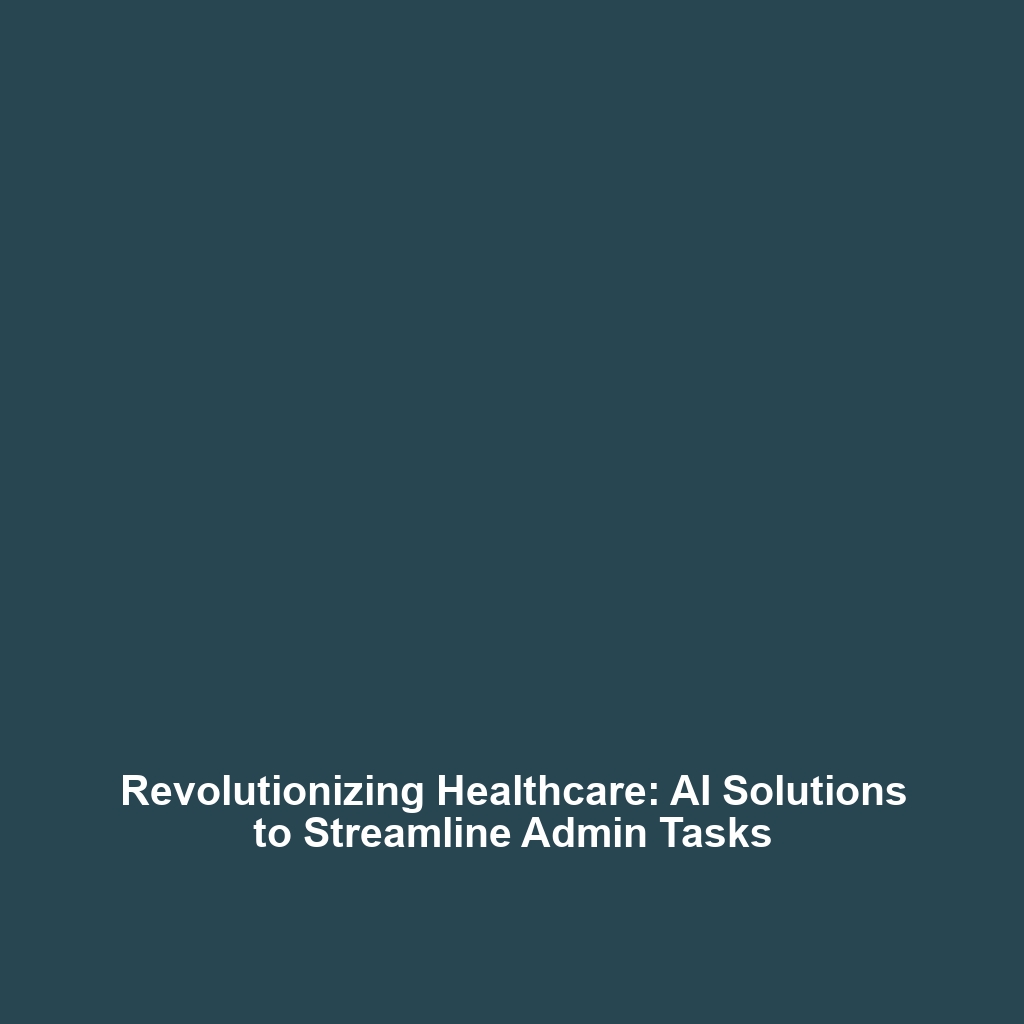Streamlining Administrative Tasks: Reducing the Burden on Healthcare Staff
Introduction
In today’s fast-evolving healthcare landscape, the integration of AI in healthcare presents unprecedented opportunities to enhance operational efficiency. One significant focus is on streamlining administrative tasks, which serves to alleviate the overwhelming burden faced by healthcare professionals. Effective management of administrative workload is crucial, as healthcare staff often spend a disproportionate amount of time on paperwork and administrative duties rather than patient care. This article explores how AI-driven technologies are revolutionizing administrative processes, ultimately leading to improved patient outcomes and operational efficiency.
Key Concepts
Understanding the implications of streamlining administrative tasks in healthcare necessitates a grasp of several key concepts:
AI-Driven Automation
Automation through AI minimizes repetitive tasks such as data entry and scheduling, enabling healthcare staff to focus on more critical patient care duties.
Data Management
Enhanced data management systems powered by AI significantly reduce errors and improve the quality of patient data, thus streamlining workflows and enhancing decision-making processes.
Integration of Systems
AI facilitates the integration of disparate healthcare systems, allowing seamless information exchange, which is essential for effective communication among healthcare staff.
Applications and Real-World Uses
The applications of streamlining administrative tasks through AI are both diverse and impactful. Key examples include:
- Scheduling Automation: AI algorithms optimize appointment scheduling, minimizing cancellations and enhancing utilization of healthcare resources.
- Billing and Claims Processing: AI systems can automate billing processes, significantly reducing claim denials and expediting reimbursement cycles.
- Patient Records Management: AI technologies can manage patient records more efficiently, ensuring accuracy and availability when needed.
These applications demonstrate how streamlining administrative tasks is not only beneficial but essential within the realm of AI in healthcare.
Current Challenges
Despite the promising advancements, there are several challenges in implementing AI for streamlining administrative tasks:
- Data Privacy Concerns: Safeguarding patient information remains a top priority, raising concerns regarding data breaches.
- Integration Hurdles: Existing legacy systems may pose difficulties in integration with new AI platforms.
- Resistance to Change: Healthcare staff may resist adopting new technologies, preferring traditional processes.
Future Research and Innovations
Ongoing research aims to address these challenges while uncovering new opportunities in AI for healthcare. Emerging innovations include:
- Advanced Natural Language Processing: Enabling more intuitive interactions with patient records.
- Predictive Analytics: Offering insights into patient care needs, thus improving resource allocation.
- Robotic Process Automation: Streamlining repetitive administrative tasks to free up healthcare personnel for critical duties.
Conclusion
In summary, streamlining administrative tasks through AI is reshaping the healthcare landscape, reducing burdens on staff while improving efficiency and patient outcomes. As we advance, continued innovation and research in this field will be vital. For further insights on how you can benefit from AI applications in healthcare, explore our other articles on AI Applications in Healthcare and Healthcare Innovations.
